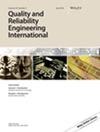Real‐time assessment on health state for bearing based on parallel encoder‐decoder observer
IF 2.8
3区 工程技术
Q3 ENGINEERING, INDUSTRIAL
引用次数: 0
Abstract
Bearings are foundational supporting components in diverse mechanical systems, essential for the reliable operation of these systems through real‐time monitoring and precise health state assessment. However, vibration signals from bearings in practical equipment often contain excessive noise and redundant information, complicating health state assessment. To address this challenge, this paper proposes a neural network‐based method named parallel encoder‐decoder (PED). This method features a parallel architecture that combines the long short‐term memory network and the temporal convolutional network for the encoder, along with a self‐attention module for the decoder. PED is adept at learning the temporal representations hidden in original signals and filtering vibration signals to remove noise and redundant information. Additionally, a multi‐objective loss function is developed to enhance the prediction results. A normalized Mahalanobis distance‐based metric is then employed to compare residual signals during bearing operation with those under normal conditions. The case study evaluates the PED observer's proficiency in accurately predicting vibration signals and assessing the performance of health indicator curves, demonstrating the proposed PED observer's superiority over conventional networks.基于并行编码器-解码器观测器的轴承健康状态实时评估
轴承是各种机械系统的基础支撑部件,通过实时监测和精确的健康状态评估,对这些系统的可靠运行至关重要。然而,实际设备中来自轴承的振动信号往往包含过多噪声和冗余信息,使健康状态评估变得复杂。为了应对这一挑战,本文提出了一种基于神经网络的方法,名为并行编码器-解码器(PED)。该方法采用并行架构,编码器结合了长短期记忆网络和时序卷积网络,解码器结合了自我注意模块。PED 擅长学习隐藏在原始信号中的时间表示,并对振动信号进行过滤,以去除噪声和冗余信息。此外,还开发了一种多目标损失函数来增强预测结果。然后采用基于归一化 Mahalanobis 距离的度量来比较轴承运行期间的残余信号和正常条件下的残余信号。案例研究评估了 PED 观察器在准确预测振动信号和评估健康指标曲线性能方面的能力,证明了所提出的 PED 观察器优于传统网络。
本文章由计算机程序翻译,如有差异,请以英文原文为准。
求助全文
约1分钟内获得全文
求助全文
来源期刊
CiteScore
4.90
自引率
21.70%
发文量
181
审稿时长
6 months
期刊介绍:
Quality and Reliability Engineering International is a journal devoted to practical engineering aspects of quality and reliability. A refereed technical journal published eight times per year, it covers the development and practical application of existing theoretical methods, research and industrial practices. Articles in the journal will be concerned with case studies, tutorial-type reviews and also with applications of new or well-known theory to the solution of actual quality and reliability problems in engineering.
Papers describing the use of mathematical and statistical tools to solve real life industrial problems are encouraged, provided that the emphasis is placed on practical applications and demonstrated case studies.
The scope of the journal is intended to include components, physics of failure, equipment and systems from the fields of electronic, electrical, mechanical and systems engineering. The areas of communications, aerospace, automotive, railways, shipboard equipment, control engineering and consumer products are all covered by the journal.
Quality and reliability of hardware as well as software are covered. Papers on software engineering and its impact on product quality and reliability are encouraged. The journal will also cover the management of quality and reliability in the engineering industry.
Special issues on a variety of key topics are published every year and contribute to the enhancement of Quality and Reliability Engineering International as a major reference in its field.

 求助内容:
求助内容: 应助结果提醒方式:
应助结果提醒方式:


